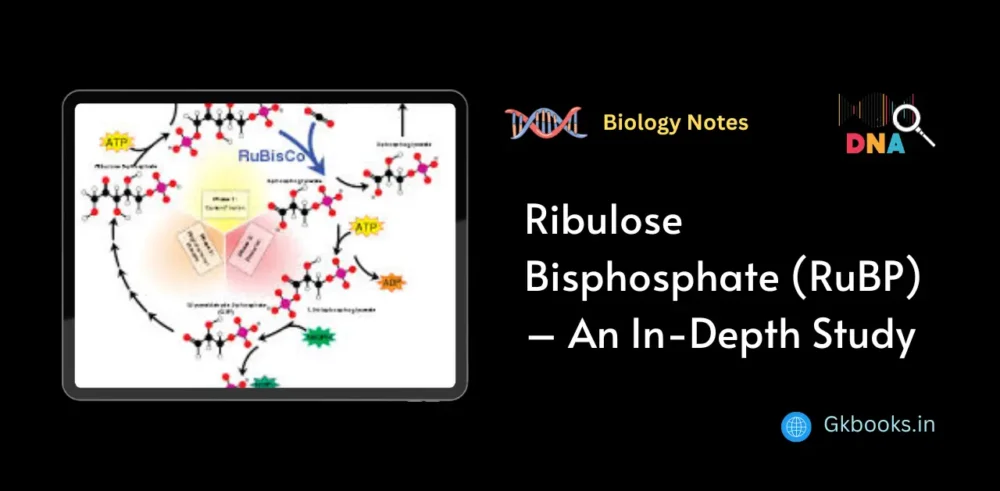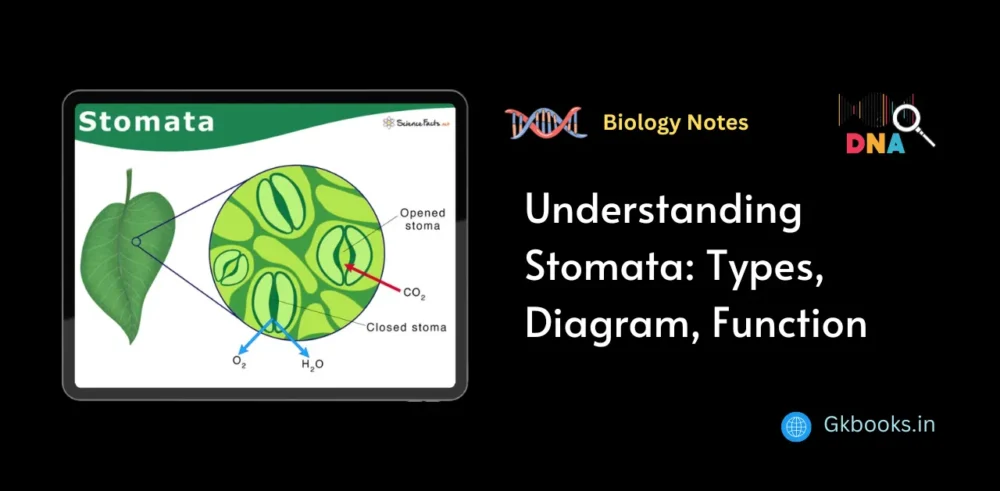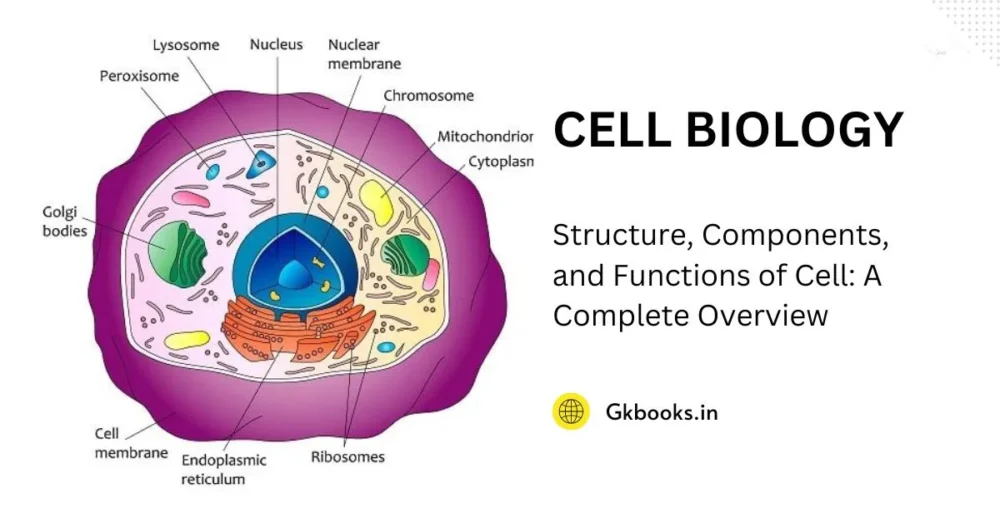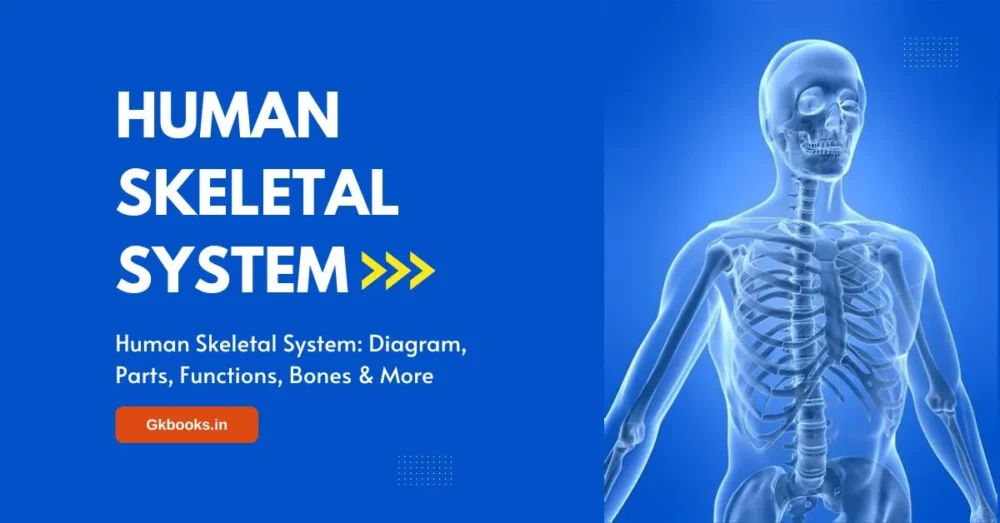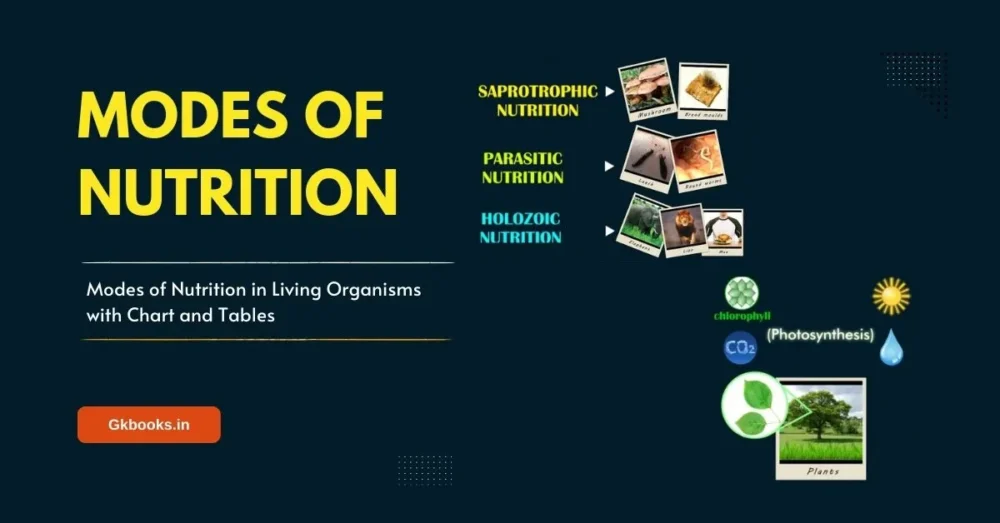Definition of Hormones
“Hormones are chemicals synthesized and produced by the specialized glands to control and regulate the activity of certain cells and organs. These specialized glands are known as endocrine glands.”
What are Hormones?
Hormones are like the body’s messengers. They’re these cool chemicals that get released by special glands called endocrine glands.
Picture these glands spread out all over your body. Now, these messengers don’t just send texts; they’re in charge of tons of stuff happening in your body and even play a role in how you feel mentally.
Think of them as the behind-the-scenes heroes, making sure everything’s running smoothly and keeping that balance, or as we call it, homeostasis.
Cell Signaling
Okay, let’s break down how these hormones do their thing based on how they get released. There are a few categories:
- Autocrine: This is like a solo act. The hormone does its thing on the very cell that released it. It’s like your cell saying, “Hey, I’ve got this!”
- Paracrine: Now, this one’s like a local chat. The hormone works on a nearby cell without needing to take a ride in the bloodstream. It’s like a neighborly interaction, just passing the message around.
- Intracrine: Imagine a hormone that’s a homebody. It’s produced inside a cell and does its job right there, inside the cell. No need to go outside; it’s an internal affair.
- Endocrine: Here’s the globetrotter (someone who travels frequently and widely). The hormone goes on a journey through your bloodstream, released by glands. Once it reaches its destination, the target cells, that’s when the magic happens. It’s like a special delivery service for your body.
Types of Hormones
So, when it comes to keeping things in check in our body, there are different types of hormones doing their thing. Let me break it down for you:
Peptide Hormones
- These are like the water-lovers.
- Made up of amino acids and all, they dissolve in water.
- But here’s the deal – they can’t sneak through the cell membrane.
- It’s like they’re trying to get into a party but can’t pass the bouncer, which in this case is the phospholipid bilayer.
- Insulin, the sugar-regulating superhero from the pancreas, is one of these peptide hormones.
Steroid Hormones
- Now, these are the fat-soluble ones, the cool kids who can breeze through the cell membrane without any hassle. Think of them as the VIPs of hormones.
- Testosterone, estrogen, and progesterone – yeah, those hormones that play a role in things like growth and, you know, making more humans – they’re the steroid hormones in action.
Endocrine Glands and the Hormones Secreted
Alright, let’s dive into the squad of glands that make sure our hormones are doing their job. Check it out:
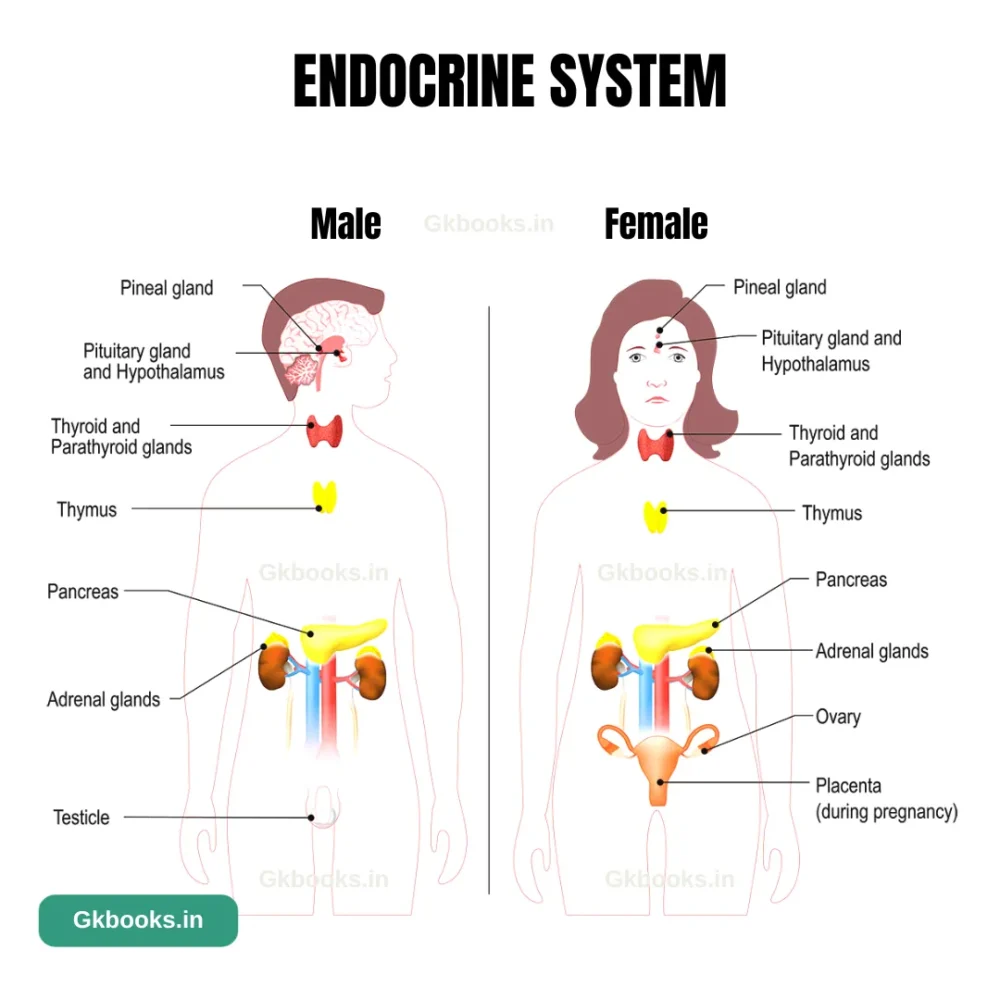
- Hypothalamus: This guy is like the boss, controlling body temperature, emotions, hunger, thirst, sleep – you name it! It’s the HQ (Headquarters) for hormone production.
- Pineal (Thalamus): The pineal, or thalamus, is the sleep guru. It produces melatonin, the sleepy-time hormone, and messes with our sleep patterns in a good way.
- Parathyroid: This one is the calcium commander. It keeps an eye on how much calcium is hanging out in your body.
- Thymus: Meet the T-cell producer. It’s all about the immune system, making sure it’s in top-notch shape.
- Thyroid: This gland is in charge of your heart rate and how your body burns calories. It’s like the metabolic maestro.
- Adrenal: Stress, sex drive, and cortisol – the adrenal gland is the multitasker here, managing a bunch of important hormones.
- Pituitary: The master control gland! It’s the puppet master, pulling the strings on other glands and making sure growth and development get the green light.
Also Read: What are the Functions of the Pituitary Gland?
- Pancreas: This one’s all about insulin, the blood sugar hero. It plays a key role in keeping those sugar levels in check.
- Testes: Guys, this is your testosterone factory. It also throws in some sperm production for good measure.
- Ovaries: Ladies, your ovaries are the hormone divas. They release estrogen, progesterone, testosterone, and all the other female hormones, making sure everything’s running smoothly.
All these glands team up to create a hormone symphony in our bodies, keeping things in harmony.
List of Important Hormones
Let’s talk about some key players in the hormone game:
- Cortisol: This one’s got the nickname “stress hormone” because it kicks in when things get tense. It revs up the heart rate, bumps up blood sugar levels, and basically helps the body respond to stress.
- Estrogen: Ladies, meet your main sex hormone. It’s the superstar behind puberty, prepping the uterus and body for pregnancy, and keeping that menstrual cycle in check. When menopause rolls around, estrogen levels do a dance, causing some not-so-fun symptoms.
- Melatonin: This hormone is the sleep maestro. It takes charge of our circadian rhythm, making sure our sleep cycles are in harmony.
- Progesterone: Another player in the female hormone scene, progesterone is like the conductor of the menstrual orchestra. It plays a crucial role in the menstrual cycle, pregnancy, and the early stages of embryo development.
- Testosterone: Hey, fellas! This one’s for you. Testosterone is the big shot in male hormones. It’s the reason for puberty, helps muscles grow, strengthens bones, and even controls things like facial hair growth. It’s like the commander-in-chief of manly developments.
Functions of Hormones
The following are some important functions of hormones:
- Maintaining body temperature.
- Food metabolism.
- Controlling thirst and hunger.
- Initiating and maintaining sexual development and reproduction.
- Growth and development.
- Regulating mood and cognitive functions.
Hormonal Diseases
Let’s chat about hormonal diseases for a bit. So, when the endocrine glands decide to throw a bit of a temper, it can lead to hormonal diseases. The troublemakers often include the hypothalamus, adrenal, and pituitary glands.
If the secretion of hormones from these trouble spots goes out of blow—whether it’s too much or too little—it can really mess with our growth, metabolism, and overall development.
Now, onto the villains causing chaos: hormonal imbalance can be the culprit behind diseases like hyperthyroidism, osteoporosis, and diabetes. Imagine it like a seesaw where the hormones are on one side, and when it tips too much to one direction, these issues pop up.
And here’s the twist in the plot: the factors behind these hormonal diseases can be a mix of genetics, the environment we’re in, and even the stuff we munch on.
It’s like a puzzle where the pieces come from our genes, the world around us, and what we choose to eat. So, when it comes to hormonal diseases, it’s like dealing with a trio of troublemakers that need a bit of balance.
Why are Hormones called Chemical Messengers?
Hormones are like the body’s own text messages, and that’s why we call them chemical messengers. Picture this: the hypothalamus, a brain big shot, has these cool cells called neurosecretory cells.
These cells are like hormone factories, producing a special one called neurohormones. These neurohormones are the messengers that kick-start the anterior lobe of the pituitary into action, triggering the production of a bunch of other hormones.
Now, sometimes hormones play the role of not just messengers but also regulators. When the production levels change, it sets off a series of events in the body.
So, think of hormones as not just delivering messages but also keeping things in balance, like a body guardian ensuring everything is running smoothly. And after hormones hit their target and do their job, it’s crucial to control their production.
That’s where the feedback control mechanism comes in, acting like a system of checks and balances. This feedback can either be positive, pushing things forward, or negative, putting on the brakes. It’s how our body maintains a harmonious balance with these chemical messengers.
Feedback Mechanism of Hormone
Let’s explore the feedback mechanism of hormones within the thyroid gland to understand how this regulatory process operates.
This mechanism plays a crucial role in maintaining the balance of thyroid hormones, such as thyroxine (T4) and triiodothyronine (T3), in the body.
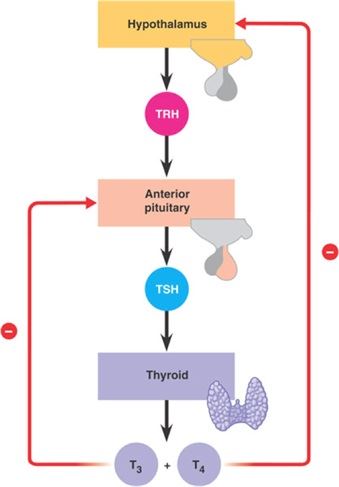
So, the thyroid gland is this powerhouse that churns out a hormone called thyroxine. The dance of thyroxine is choreographed by two key players: Thyrotropin Releasing Hormone (TRH) from the hypothalamus and Thyroid Stimulating Hormone (TSH) from the anterior pituitary.
Here’s how the feedback story unfolds: when the thyroxine level in the blood takes a dip, the hypothalamus steps in, saying, “Hey, let’s boost thyroxine production!” It does this by revving up TSH secretion. Now, this part is like a positive feedback loop, pushing things up.
But, here’s the catch, we don’t want thyroxine levels skyrocketing. So, if the hypothalamus goes on overdrive, it could lead to too much thyroxine. That’s when negative feedback kicks in. The high thyroxine levels signal back to the hypothalamus, telling it to ease up on the TRH and to the pituitary to cool it with the TSH. This brings the thyroxine level back to a balanced state.
Now, once hormones like thyroxine do their job in the target tissues, they don’t stick around for the after-party. Organs like the liver and kidney take charge, clearing them out of the system. It’s like a cleanup crew making sure things stay neat and tidy in our hormonal dance.
Frequently Asked Questions
Progesterone is produced by the ovaries. It’s like a special caretaker hormone during certain times in a woman’s life.
The adrenal glands release a hormone called Epinephrine, also known as adrenaline. It’s like the energy boost you get when you need it the most.
The thyroid gland produces thyroxine, triiodothyronine, and calcitonin. These hormones act like the body’s thermostat, keeping things just right.
The pineal gland produces Melatonin, the sleep regulator. It’s like the body’s natural bedtime storyteller.
Gigantism is caused by growth hormones from the pituitary gland. It’s like the body hitting a growth spurt button.
Gigantism is caused by growth hormones from the pituitary gland. It’s like the body hitting a growth spurt button.
Hormones are made of either proteins or steroids. It’s like having different ingredients in a recipe, each serving a specific purpose.
In guys, testes are responsible for producing Testosterone, and in ladies, ovaries do the same job. It’s like the body’s way of maintaining balance.
Hormones are like messengers in our body. They’re chemicals that control and manage the activities of specific cells and organs. Imagine them as traffic police directing the flow of activities. These hormones come from special glands called endocrine glands.
Acromegaly happens when the pituitary gland produces too much growth hormone, often due to a harmless tumor. It’s like a volume control problem in the body’s growth music.
There are two types of hormones: Peptide hormones and steroid hormones. Think of them as different teams working together to keep things in balance.
Three common diseases due to hormonal imbalance are Diabetes, Osteoporosis, and Hyperthyroidism. It’s like the body’s orchestra playing out of tune.
More Notes on Biology:


